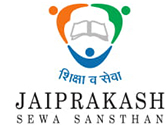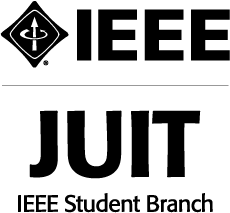 |
Hybrid (Online/Offline) Mode
(Authors should ensure that they have completed the Google Form linked in the acceptance email and submitted the ZIP file containing the required documents, as specified in the acceptance email, to registration.ispcc2025@juitsolan.in)
Conference Indexing: @IEEE Digital Explore (Scopus Indexed)
ABOUT THE CONFERENCE
7th International Conference on Signal Processing, Computing and Control (ISPCC 2k25) will be organized by Jaypee University of Information Technology, Waknaghat, India. The aim of the ISPCC is to serve for researchers, developers, educators working in the area of signal processing, computing, control and their applications to present and future work as well as to exchange research ideas. ISPCC 2025 invites authors to submit their original and unpublished work that demonstrates current research in all areas of signal processing, computing, control and their applications.
Theme of the conference is “Artificial Intelligence in VLSI”. However, ISPCC 2025 solicits original papers contributions in all of the related areas.
Track 1: Signal Processing
Audio and Acoustic Signal Processing, Multimedia Signal Processing, Signal Processing Education, Design and Implementation of Signal Processing Systems, Image and Video Processing, Signal Processing for Communications and Networking, Machine Learning for Signal Processing, Adaptive Signal Processing. Biomedical Signal Analysis, Biomedical Modelling and Informatics, Biomedical imaging, Bio medical Instrumentation, Biomedical Devices, Bio Sensors, Bio Electronics, Bioinformatics, Real Time Systems, Robotics, Artificial & Augmented intelligence and their applications, Biometrics & RFID, Computational Intelligence, Deep Learning, Big Data Analysis, RF, Microwave, Millimeter wave: Theory and Techniques, Electromagnetic, Antennas and Propagation, Ultrasonic, Ferroelectrics, and Frequency Control, Wireless technologies, Broadcasting
Track 2: Communication, Computer and Information Technology
Communication, Signal, Image and Video Processing, Ad-hoc and wireless Sensor Networks, Quality of Service, Wireless Communications and Networks, Microwave Theory and Techniques, Antenna Theory and Design, Terahertz Communication Technologies, Information and Coding Theory, Communications and Information Security, Cognitive Radio and Networks, Optical Communication and Networking, IOT, 5G Networks and Cloud Computing, Data and Business analytics, Computational Social Science & Social Networks, Artificial & Augmented intelligence and their applications, Biometrics & RFID, Computational Intelligence, Deep Learning, Big Data Analysis
Track 3: Control and Automation
Instrumentation and Automation, Robotics, Adaptive and Resilient Control Systems, Process Control, Failure Analysis, Yield Enhancements and Modeling, Networked Control System, Fault Tolerant Control System, System Performance and Reliability, UAS for precision agriculture, UAS guidance, navigation and control, Problems and challenges in aerial robotics, Sense and Avoid, Home Automation, Networked Control Systems, Conventional, Renewable and Green Energy, Energy Storage Devices, Charging infrastructure, onboard, off-board chargers, Industrial Electronics and applications, Smart Grid and Micro Grid, Intelligent Transportation Systems, Modelling & Simulation of Machines, Power Systems, High Voltage and Power Electronics, Dielectrics and Electrical Insulation, Electric Vehicle
Track 4: VLSI, Embedded and Ubiquitous Computing
AI in VLSI Design, Reconfigurable Computing/FPGA, Network on Chip, System on Chip. Design, Modelling and Simulation of Digital/Analogue IC, VLSI Circuits and Systems, CAD for VLSI, Interconnect Modelling and Algorithms, Micro-Electro-Mechanical Systems, Mixed Analogue/Digital Systems. Power Optimization Techniques, Reconfigurable Hardware Design, ASIC & System On Chip, CMOS-based RF VLSI Design, VLSI architecture Design, implementation & testing, Pervasive and mobile computing
Track 5: Engineering in Medicine and Biology
Biomedical and Health Informatics (BHI), Biomedical Imaging and Image Processing (BIIP), Computational Biology and the Physiome (CBP), Wearable Biomedical Sensors and Systems (WBSS), Therapeutic Systems and Technologies (TST), Bionanotechnology and BioMEMS (BNM), Translational Engineering and Healthcare Innovation (TEHI), Tele-working Technologies, Social Health extraction from Social media and networks, AI in Human Machine interaction, Artificial Intelligence Algorithms, Fuzzy and Neural Systems, Artificial Intelligence Tools and Applications, Pattern Recognition, Parallel Processing, Soft Computing Techniques. Changing software, Architectural Paradigms, Reconfigurable Architectures, Software Inspection, Verification & Validation, Software Sizing and estimation techniques, Knowledge Based Systems, Online education Technologies (university, high school, and elementary).
Track 6: Theme Based Special Sessions
The ISPCC-2025 team plans to hold special sessions on various areas of expertise. Special session proposals are invited related to broad area of ISPCC 2025 or theme of the conference. Proposal submitter must have expertise in the proposed area. The proposals will be judged by the ability to bring together the key researchers in the state-of-the-art area, further development of the area, and help in establishing a larger research community beyond the area. Details are uploaded at:
http://www.juit.ac.in/ispcc_2025/special_session.php
“The Microsoft CMT service was used for managing the peer-reviewing process for this conference. This service was provided for free by Microsoft and they bore all expenses, including costs for Azure cloud services as well as for software development and support.”
CONTACT US
e-mail: ispcc2025@juitsolan.in
Correspondence:
Dr. Rajiv Kumar
General Chair- ISPCC 2k25
Desk Phone: +91-1792-239261 (Office)
Personal Phone: +91- 9816365801
Email: rajiv.kumar@juitsolan.in, harsh.sohal@juitsolan.in, shweta.pandit@juitsolan.in
Conference Email: ispcc2025@juitsolan.in
http://www.juit.ac.in/ispcc_2025



